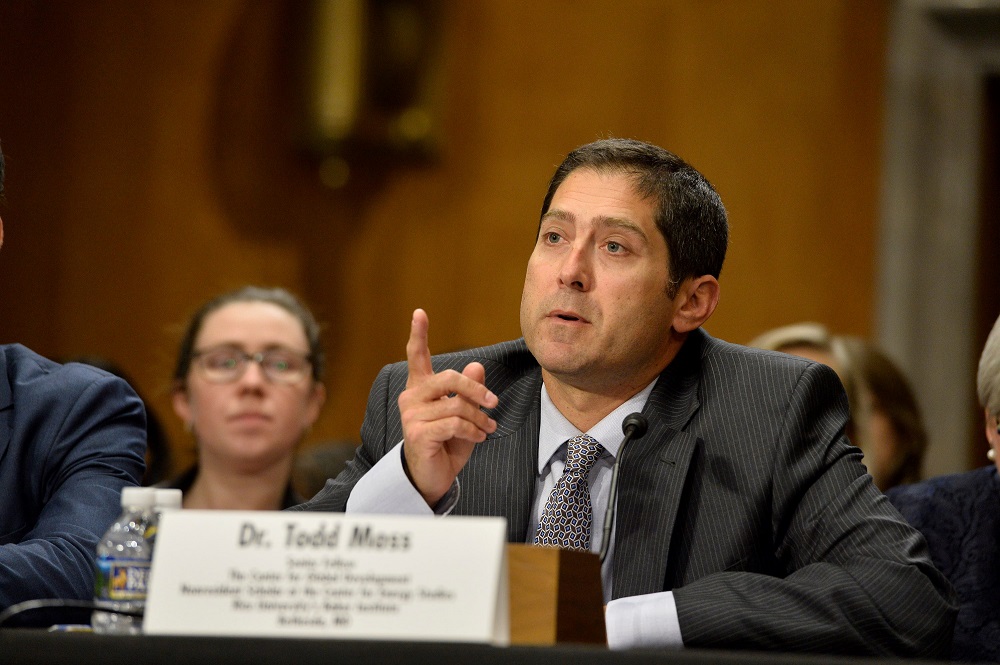Newt Gingrich, one of President-elect Trump’s key advisors, thinks US foreign assistance needs a “dramatic” overhaul, dismissing a status quo that he characterizes as “our bureaucracy giv[ing] another bureaucracy money.” He would prefer an approach that relies on tax breaks for US firms to invest in developing countries. This doesn’t exactly jibe with the new administration’s broader sentiments about the tax treatment of US firms invested overseas. But never mind that. The more fundamental issue relates to how we think about promoting private sector development in other countries.
In one sense, the case is obvious—economies will not grow in a sustainable way without a robust private sector. This simple premise has long underpinned efforts in institutions like the IMF, the World Bank, and the US Treasury to promote sound regulatory regimes and macroeconomic policies, and even more fundamentally, basic adherence to rule of law. Private sector development has long been viewed as essential, and the US role in promoting it has focused mostly on how developing country governments could best set a policy environment that made it possible.
In more recent years, though, as donor dollars have become more scarce, the global agenda has shifted to emphasize various ways that official actors can seek to attract private funds to development projects. This evolution of the “private sector” development agenda increasingly has donor governments playing the role of deal makers rather than policy makers.
And into this environment comes the election of Donald Trump, lauded and derided as the United States’ new “deal maker in chief.” It would seem that Trump’s modus operandi is ready made for the current development zeitgeist.
But let’s consider the risks of this for development. What could go wrong with an agenda that is centered on “deal making for development”?
One of the tropes of this agenda is the “win-win,” that seemingly everywhere and always, a transaction involving a US firm and a developing country is good for the firm and good for development. We see this kind of thinking in the rhetoric of the Obama administration’s Power Africa initiative, even as the initiative itself seems to take aim at policy reform alongside project-level transactions. In President Obama’s words, Power Africa is “a win for Africans…and it’s a win for the United States because [it] means more exports for the US and more jobs in the US.”
Maybe, but this is not intrinsically so. Any private transaction can create winners and losers, often among those who are not direct parties to the deal. In economic terms, these are the external costs and benefits that ought to be accounted for under a sound policy framework. Indeed, with appropriate policy guidance, the US government would only involve itself in deals where there are clear market failures. More generally, the case for our government’s involvement is not narrowly defined by the private parties to the deal, but by the broader public interest.
This is not exactly cutting edge development policy thinking. The United States, like many other countries, has a broad and deep regulatory and tax regime that speaks directly to the potential for winners and losers in private transactions, whether it relates to environmental impact, corruption, or even national security considerations.
So what are the risks of a US development policy that puts private sector deals center stage?
First, a deal making culture will promote transactions that consistently benefit US firms, but less consistently benefit the developing country. This is why we long ago negotiated international standards that limit “tied aid” in the face of evidence that the United States and other donor countries were pushing goods and services on developing countries that were too often unwanted and unneeded. The pushing is a consequence of domestic political interests (typically commercial interests) taking precedence over the interests of the developing country.
Second, when the private sector deal is viewed as intrinsically good for development, we will see more deals that proceed with indifference to social costs. With evidence that continuing to add coal capacity globally would harm climate progress, the Obama administration sought to restrict coal projects through Exim and OPIC, the US government’s overseas financiers. The Obama administration’s decision was hard fought politically, and particularly at Exim, was portrayed by critics as sacrificing American jobs for climate objectives. If Exim’s deal-based culture had had the upper hand over broader policy considerations within the administration, these restrictions would not have prevailed.
A third risk of deal making for development is that it ignores and in some cases even corrupts the objectives of sound regulatory and tax regimes in developing countries. A deal making US government could find itself a party to transactions that need a quick regulatory fix in a developing country in order to proceed. That fix may or may not be in the broader public interest, and could even undermine a competitive marketplace by conferring special protections or market power on the parties to the deal.
Finally, government needs to be able to act clearly in the public interest at times when those interests strongly collide with an individual firm. This can be particularly challenging politically when the collision occurs overseas. There is an important reason that the United States government found itself filing an amicus brief in support of the government of Argentina and against the interests of US-based “holdout” bondholders in a case before the US Supreme Court a few years ago.
The government properly was looking out for the public’s interest in ensuring orderly international financial markets, with clear evidence of the damage caused by disorder just a few years prior with the Great Recession. Yet, this dispute pitted an American firm, which employed tremendous lobbying resources, against a foreign government that was not particularly friendly to the United States. Which is to say, the politics of the US government’s stance were horrible, even as that stance on behalf of the public was sound. In an administration where deal making abroad is elevated, it is far less clear that the U.S. government would choose to weigh in on a court case to defend broader policy considerations.
Now, all of these risks can be mitigated when we consider carefully-crafted proposals to expand OPIC or create a new US development finance institution (DFI), such as those based on work done at the Center for Global Development. No less a thoughtful champion of development than US Senator Chris Coons has taken up just such an idea.
Unfortunately, there is considerable risk at the moment in putting forward a development initiative that emphasizes US government support for specific private transactions over policy. Leading economists and legal experts have already raised serious concerns about the president-elect’s interventions with private firms since the election as well as his unwillingness to follow long-standing practice with regard to the emoluments clause of the US Constitution. Both critiques engender little confidence that a Trump administration will seek to use a DFI under a broader framework defined consistently by the public interest. Instead, we could see a Trump-era DFI giving rise to deals that do more harm than good to the broader aims of development.
Rule of law, efficient tax systems, and sound regulatory regimes – these are the elements of a policy agenda that can unlock private sector development. There’s a role for project level interventions in the face of clear market failures and under a strong policy framework. But these interventions should not be center stage for US development policy. It is possible that thoughtful champions like Senator Coons could succeed in working with the new administration on an approach that strikes the right balance between policy and deal making, and includes good safeguards associated with the latter. But anything short of that should be rejected.
Rights & Permissions
You may use and disseminate CGD’s publications under these conditions.




